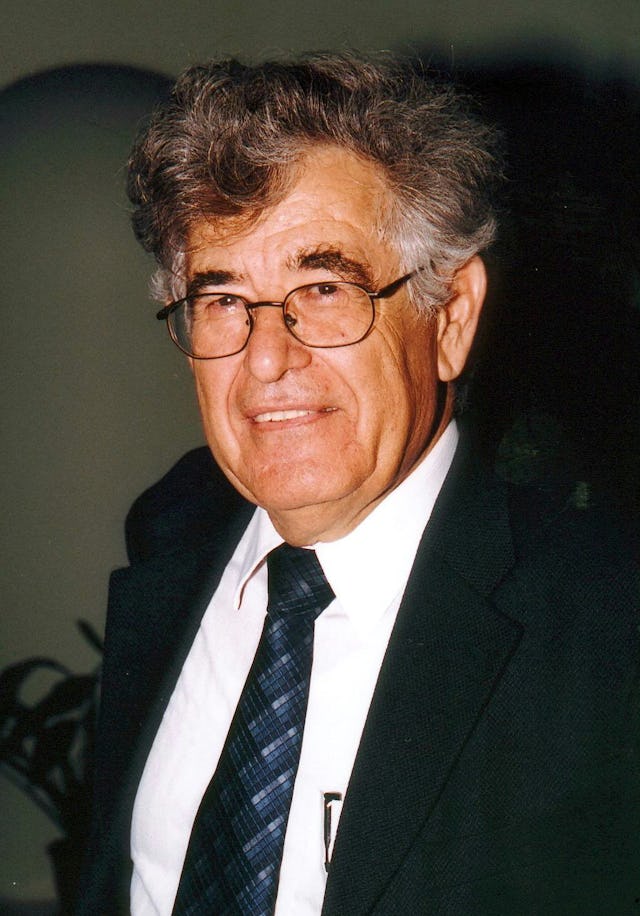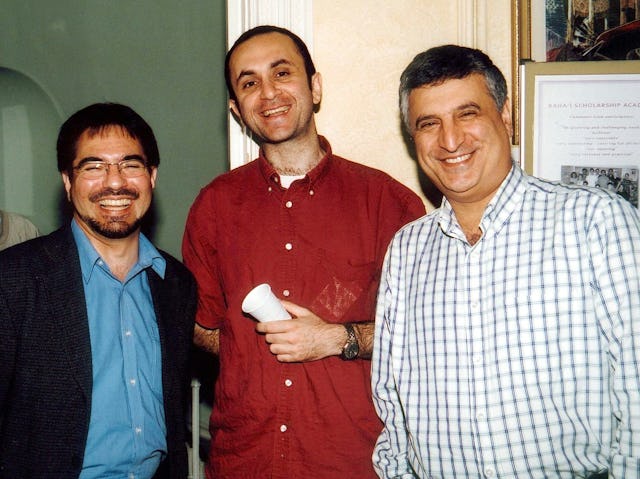Leading economist calls for global reform
LONDON — A leading economist has joined his voice to the growing doubts about the capacity of existing international institutions to tackle the world's problems.
Augusto Lopez-Claros, the chief economist with the World Economic Forum in Geneva, told a conference organized by the Association of Baha'i Studies in association with the Irfan Colloquium that humanity is trying to face its challenges but its institutions are simply incapable of delivering adequate solutions.
His address was one of the keynote talks at the conference, held 2-4 July 2004 at the University of London's Institute of Commonwealth Studies, which aimed to explore Baha'i views on the theme of "Power and Responsibility."
Mr. Lopez-Claros, who is a Baha'i, pointed to new challenges in the modern world like the increasing globalization of business and the radical change in the service industries caused by alliances between distant nations.
"Our current institutions were not designed for these changes nor for the challenges posed by the environmental crisis, AIDS or terrorism," Mr. Lopez-Claros said. "Political structures are hierarchical, rigid, and slow. Some governments are adapting but most are struggling."
The result, Mr. Lopez-Claros said, is a growing public dissatisfaction with politicians and politics. "Only a global framework and global institutions can address certain problems," he said.
One of the conference organizers, Nazila Ghanea-Hercock of the Institute of Commonwealth Studies, said that "Power and Responsibility" are of concern in a number of disciplines, including governance, science, medicine, and the media.
"A lot of people feel disempowered from sources of authority," she said. "We need to discuss how humanity deals with this issue in order to progress."
Scholar and author Moojan Momen described ways in which the Baha'i community offers a promising model for secular institutions, taking into consideration the fact that many people feel they don't have a say in their society, and that a balance must be found between individual freedoms and centralized authority.
"In the Baha'i model, power does not rest with individuals but institutions," Dr. Momen said. "Baha'i consultative practice provides a safe and encouraging environment for people...to express their views. Devolution to local decision making has been the evolving hallmark of [Baha'i] planning processes."
Dr. Momen said the balance between individual freedom and central authority was explored by Baha'u'llah in a letter to Queen Victoria of Britain.
"On the one hand He applauded British efforts towards elected democracy but on the other He condemned excesses of liberty. Certainly the Baha'i experience in these areas could be fruitfully examined as a model for change."
Another speaker, Nahal Mavvadat, from the University of Birmingham, described an evolving maturity in medical treatment where patients are being increasingly encouraged to take an active role in their own healing.
"A new paradigm for medicine would temper scientific knowledge and wisdom with human virtues such as compassion, trust, and a commitment to living according to spiritual laws," Dr. Mavvadat said.
Among the distinguished guests was Professor Moshe Sharon, who holds the chair for Baha'i studies at the Hebrew University in Jerusalem.
Professor Sharon, who is not a Baha'i, addressed the conference on the challenges he faced in translating Baha'u'llah's Book of Laws, the Kitab-i-Aqdas, into Hebrew.
The conference was organized by the Association for Baha'i Studies - English-Speaking Europe in association with the Irfan Colloquium.
The Association of Baha'i Studies has 20 affiliates, each dedicated to the study and application of Baha'i teachings.
The Irfan Colloquia started in 1993 and aim to foster systematic studies of the scriptures of the world's religions from the Baha'i perspective and to promote scholarly studies of the belief system of the Baha'i Faith.
(Report by Rob Weinberg.)
(Photos by Hamid Jahanpour.)

